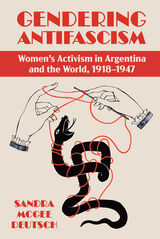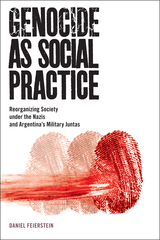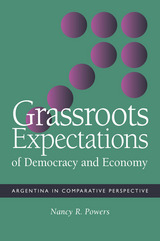4 start with G start with G

A History of the Women’s Antifascism Movement in Argentina that Contains Lessons for Opposing Fascism Today
Argentine women’s long resistance to extreme rightists, tyranny, and militarism culminated in the Junta de la Victoria, or Victory Board, a group that organized in the aftermath of the German invasion of the Soviet Union in defiance of the neutralist and Axis-leaning government in Argentina. A sewing and knitting group that provided garments and supplies for the Allied armies in World War II, the Junta de la Victoria was a politically minded association that mobilized women in the fight against fascism. Without explicitly characterizing itself as feminist, the organization promoted women’s political rights and visibility and attracted forty-five thousand members. The Junta ushered diverse constituencies of Argentine women into political involvement in an unprecedented experiment in pluralism, coalition-building, and political struggle. Sandra McGee Deutsch uses this internationally minded but local group to examine larger questions surrounding the global conflict between democracy and fascism.

The Nazis resorted to ruthless methods in part to stifle dissent but even more importantly to reorganize German society into a Volksgemeinschaft, or people’s community, in which racial solidarity would supposedly replace class struggle. The situation in Argentina echoes this. After seizing power in 1976, the Argentine military described its own program of forced disappearances, torture, and murder as a “process of national reorganization” aimed at remodeling society on “Western and Christian” lines.
For Feierstein, genocide can be considered a technology of power—a form of social engineering—that creates, destroys, or reorganizes relationships within a given society. It influences the ways in which different social groups construct their identity and the identity of others, thus shaping the way that groups interrelate. Feierstein establishes continuity between the “reorganizing genocide” first practiced by the Nazis in concentration camps and the more complex version—complex in terms of the symbolic and material closure of social relationships —later applied in Argentina. In conclusion, he speculates on how to construct a political culture capable of confronting and resisting these trends.
First published in Argentina, in Spanish, Genocide as Social Practice has since been translated into many languages, now including this English edition. The book provides a distinctive and valuable look at genocide through the lens of Latin America as well as Europe.
Download open access ebook here.


This highly readable study addresses a range of fundamental questions about the interaction of politics and economics, from a grassroots perspective in post-transition Argentina. Nancy R. Powers looks at the lives and political views of Argentines of little to modest means to examine systematically how their political interests, and their evaluations of democracy, are formed. Based on the author’s fieldwork in Argentina, the analysis extends to countries of Latin America and Eastern Europe facing similarly difficult political and economic changes.
Powers uses in-depth interviews to examine how (not simply what) ordinary people think about their standard of living, their government, and the democratic regime. She explains why they sometimes do, but more often do not, see their material conditions as political problems, arguing that the type of hardship and the possibilities for coping with it are more politically significant than the degree of hardship. She analyzes alternative ways in which people define democracy and judge its legitimacy.
Not only does Powers demonstrate contradictions and gaps in the existing scholarship on economic voting, social movements, and populism, she also shows how those literatures are addressing similar questions but are failing to “talk” to one another. Powers goes on to build a more comprehensive theory of how people at the grassroots form their political interests. To analyze why people perceive only some of their material hardships as political problems, she brings into the study of politics ideas drawn from Amartya Sen and other scholars of poverty.
READERS
Browse our collection.
PUBLISHERS
See BiblioVault's publisher services.
STUDENT SERVICES
Files for college accessibility offices.
UChicago Accessibility Resources
home | accessibility | search | about | contact us
BiblioVault ® 2001 - 2024
The University of Chicago Press









